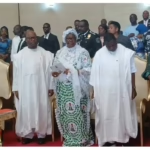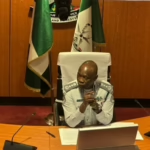By Charles Maduka
President Bola Tinubu has signed into law four major tax reform bills aimed at overhauling Nigeria’s revenue system and improving the country’s fiscal framework. The signing ceremony took place at the Aso Rock Presidential Villa in Abuja on Thursday at about 3:20pm.
The newly enacted laws include the Nigeria Tax Bill, the Nigeria Tax Administration Bill, the Nigeria Revenue Service (Establishment) Bill, and the Joint Revenue Board (Establishment) Bill.
According to the Presidency, the reforms are expected to streamline the country’s complex tax system, enhance ease of doing business, increase government revenue, and boost both domestic and foreign investment.
One of the key highlights is the Nigeria Tax Bill, also referred to as the Ease of Doing Business Bill, which consolidates the nation’s fragmented tax laws into a harmonised and predictable structure. This bill aims to reduce multiple taxation, eliminate duplication, and simplify tax compliance for individuals and businesses.
The Nigeria Tax Administration Bill establishes a unified legal framework for tax operations across the federal, state, and local levels, promoting coordination and efficiency in revenue collection.
Additionally, the Nigeria Revenue Service (Establishment) Bill repeals the existing Federal Inland Revenue Service Act and introduces a more autonomous, transparent, and performance-driven national agency, now called the Nigeria Revenue Service. The agency’s responsibilities have been expanded to cover non-tax revenue, with a clear focus on accountability and service delivery.
The fourth bill, the Joint Revenue Board (Establishment) Bill, creates a formal structure for collaboration between tax authorities nationwide. It also provides for the establishment of a Tax Appeal Tribunal and the Office of the Tax Ombudsman to handle taxpayer complaints and disputes.
Dignitaries present at the signing included the Senate President, Speaker of the House of Representatives, Minister of Finance Wale Edun, Attorney General of the Federation Lateef Fagbemi, and Governors Forum Chairman Abdulrahman Abdulrazaq, among others.
The presidency emphasised that these reforms are not just administrative but represent a critical step toward building a fair and transparent tax system that supports Nigeria’s long-term economic goals.










Leave a Reply